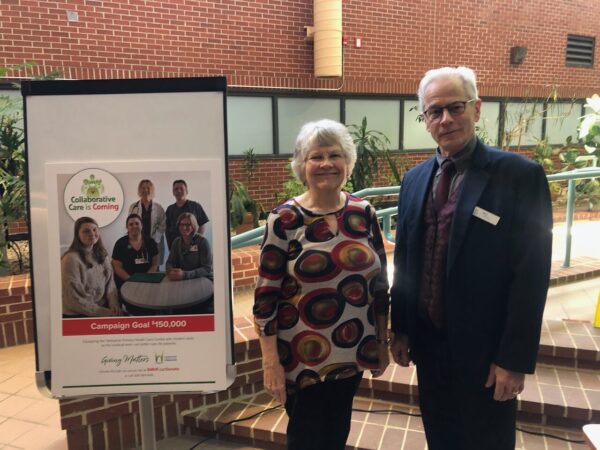
New Brunswick has the second highest rate of food insecurity in the country, behind only Alberta, according to a recent report by PROOF, a food insecurity research program based at the University of Toronto.
PROOF found that nearly one out of every six households in the country had problems or concerns meeting their food needs in 2021. And in New Brunswick, that number was even higher, with 19% (about 64,000 households) reporting food insecurity.
“I think it’s shameful,” says Heather Patterson, director of the Sackville Food Bank. “It’s something that all people who work with food banks know, and it’s been going on like this for a very long time.”

Patterson says food banks are not the answer. “Successive governments have been aware of these problems and have tried to fix things with giving money to food banks,” says Patterson. “That’s not the solution. The Food Bank is a great stopgap measure, but it shouldn’t be the solution to poverty or food insecurity.”
The PROOF report is based on Statistics Canada’s Canadian Income Survey conducted in 2021, and also breaks down the severity of food insecurity that people are experiencing.
In New Brunswick, nearly 6%—or 20,000 households—are severely food insecure, meaning they miss meals, reduce their food intake and sometimes go without food.

Patterson says she knows of one Sackville client who eats a single meal a day, in order to make ends meet. “It’s just so bad for everybody,” she says. “It leads to health problems, but it also leads to anxiety and depression and all these other things,” says Patterson, “because you’re always afraid of is there going to be enough food for my family? Where am I going to get it? How am I going to get it?”
Another Food Bank client is suffering from anxiety and depression severe enough to make it difficult for her to hold down a job, says Patterson. “There are kids who are living on their own at 16,” says Patterson, “because there could be family violence, there could be family poverty, we don’t know. But these kids are not at home. There’s not a parent looking after them. They’re out on their own, and they have to bounce around from place to place.”
The PROOF report notes the connection between poverty, food insecurity and health. “People living in food-insecure households are much more likely than others to be diagnosed with a wide variety of chronic conditions,” reads the report. They also tend to have more difficulty managing chronic conditions, and are therefore, “more likely to experience negative disease outcomes, to be hospitalized, and to die prematurely.”
PROOF found that over half of the households who experienced food insecurity where relying on employment incomes. Patterson says she blames a too-low minimum wage. “We have families where both parents are working for minimum wage jobs, and they can’t make enough to put food on the table, pay the rent and the power and, have a car to go to work,” says Patterson.
Patterson says she was glad to see the PROOF report make connections to social policy choices of governments. She also blames a changing attitude towards taxation as part of the problem. “The thing that’s striking to me is, there is a concerted effort to make taxation sound like it’s a bad thing. But in fact, it was a what made us a healthy economy in the 60s and 70s, and into the 80s. We had higher levels of taxation, but we also had higher levels of service. We didn’t have people who were outrageously wealthy the way that we do now, and people who are outrageously poor.”
Hear Sackville Food Bank director Heather Patterson in conversation on Tantramar Report:



















